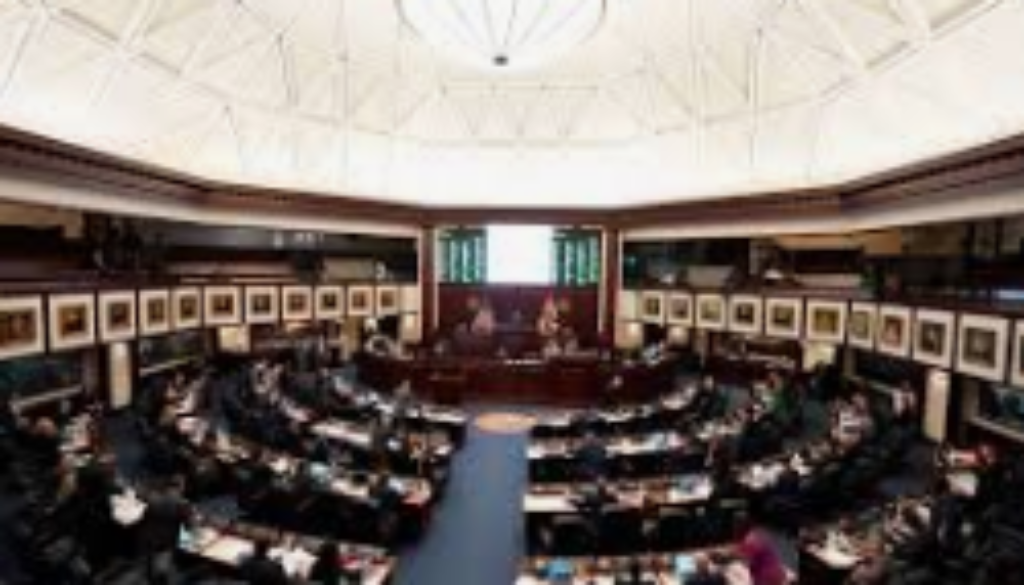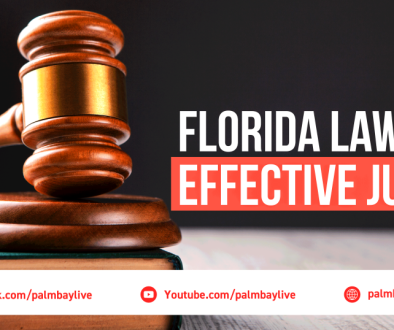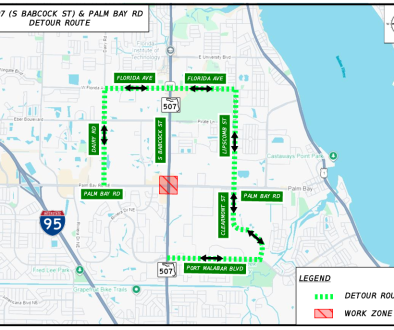Governor DeSantis’ Key Signatures from the 2024 Florida Legislative Session
Florida’s 2024 legislative session that began on January 9 and ended on March 8 saw a flurry of legislative efforts to reshape the state along more conservative lines. The results were a mixed bag of outcomes. Key legislative initiatives ranged from imposing new regulations on the digital landscape to healthcare reforms aimed at increasing the provider workforce. While some proposed laws, like one to lower the age of buying a rifle from 21 to 18, failed to secure passage, others, such as the legislation raising the age requirements for stripers from 18 to 21, successfully made their way through the legislative process.
Here are the major bills Florida Governor Ron DeSantis has signed into law:
HB 3 – Online Protections for Minors
In a move stirring considerable debate, Governor DeSantis has signed into law a measure targeting social media usage among minors. This is one of the country’s most restrictive social media bans for minors. Under the law, children younger than 14 will be banned from having their own social media accounts in the state, and those ages 14 or 15 will need parental consent to join a platform. Minors will be banned from “pornographic or sexually explicit” websites, and access to these websites will require age verification, such as facial scans.
Social media platforms will be required to verify users’ ages and integrate content moderation and parental controls into their services. This law, part of a broader effort to shield kids from online risks, raises significant questions about privacy, enforcement, and the balance between protection and restriction. It will take effect on January 1.
HB 49 – Employment
HB49 will allow 16- and 17-year-olds in Florida to work over 30 hours a week with a waiver from a parent, guardian, or school superintendent. The legislation, effective July 1, permits teens to work longer on weekends and holidays. It also mandates a 30-minute break for shifts exceeding eight hours. Homeschooled 16- and 17-year-olds and those who attend virtual schools can still work without any of the limitations placed on minors. While Governor DeSantis signed a toned-down version of the bill, critics say longer work hours could negatively impact students’ studies, and some are voicing concerns that teenagers could be used to address labor shortages.
SB 7016, SB 7018, SB 330, SB 1758 – Health Care
The “Live Healthy” bill package aims to revamp Florida’s healthcare sector with a $1.5 billion investment over ten years. SB 7016 includes $717 million to increase medical residencies, expand telehealth for minority maternity care, and offer tuition reimbursement for healthcare workers, with a significant portion enhancing Medicaid reimbursement rates. SB 7018 introduces a ten-year loan program for innovative healthcare projects. SB 330 creates a designation for behavioral-health teaching hospitals, and SB 1758 aims to reduce the waiting period for Floridians with disabilities seeking state services. These efforts seek to address the growing need for healthcare workers and improve access to healthcare services across the state.
HB 621 – Property Rights
Governor Ron DeSantis has enacted a law targeting squatters, making it easier for property owners to have them removed and imposing harsher penalties for squatting. The legislation, effective July 1, allows immediate law enforcement action against squatters and criminalizes the presentation of false property documents. It introduces stringent penalties for those occupying properties without permission, including criminal charges for using false documents to claim property rights. The law specifies offenses ranging from misdemeanors for minor infractions to felonies for causing significant damage or unlawfully advertising property sales or rentals. It also makes it a felony to cause $1,000 or more in damage to the property. Squatting has recently become a national issue. Many states treat squatting as a civil matter, which takes time to resolve. Florida’s new law lets property owners remove squatters without having to go through a formal process.
HB 1365 – Unauthorized Public Camping and Public Sleeping
This new homelessness law in Florida restricts the use of public spaces for sleeping and establishing government-run camps with essential services for those in need. Critics argue it lacks long-term housing solutions, while supporters believe it will ensure safer and cleaner public areas. The law, accompanied by a $10 million state fund for implementation, has sparked debate over its potential impacts on the homeless population and the effectiveness of its approach. Florida reported more than 15,480 unsheltered people, which is six percent of the national total, in 2023.
HB 1451 – Identification Documents
Under this law, cities and counties will be barred from accepting ID cards or documents knowingly issued to illegal migrants. The new law applies to what are known as “community” ID cards, which can be used to pick children up from schools, go to doctor’s appointments, and adopt animals. This builds upon an existing Florida law that already prohibits local governments from issuing IDs to illegal migrants.
SB 1036 – Reclassification of Criminal Penalties
Florida has introduced a law escalating penalties for individuals committing crimes after deportation, upgrading charges to the next higher degree of felony, and imposing stricter penalties for crimes aiding drug cartels. This legislation intensifies consequences to address recidivism among deported individuals and combat drug cartel activities.
HB 1589 – Driving Without a Valid Driver License
This new law seeks to deter driving without a valid license by increasing penalties. It includes a maximum sentence of up to one year for repeat offenders and a mandatory sentence of 10 days in jail for those with three or more violations. The previous maximum sentence for individuals caught without a valid driver’s license was 60 days. This law does not only target U.S. citizens but also illegal migrants. Proponents say that it will deter migrants from coming to Florida out of fear that they will be caught and deported.
SB 304 – Household Moving Services
Florida Governor Ron DeSantis has signed a bipartisan bill, SB 304, into law to combat price gouging in the moving industry. Effective from July 1, the legislation sets strict guidelines for moving companies and brokers, including enhanced documentation and transparent contract requirements, aimed at preventing the withholding of customers’ possessions for additional fees. Violations of these new regulations could lead to fines of up to $50,000. This move follows widespread complaints of predatory practices within the industry, particularly in Florida, and represents a significant step towards consumer protection and industry accountability.
SB 676 – Food Delivery Platforms
Florida Governor Ron DeSantis signed a new law, SB 676, to enhance transparency between restaurants and customers using food delivery apps like Uber Eats, DoorDash, and Grubhub. The legislation, effective immediately, requires these platforms to improve communication during and after delivery, fully disclose fees, and allow restaurants to reply to customer reviews. It also prohibits altering restaurant prices without consent. With a deadline for full implementation by July 2025, the law introduces fines of up to $1,000 for violations and aims to protect consumer and restaurant rights in the food delivery process.




